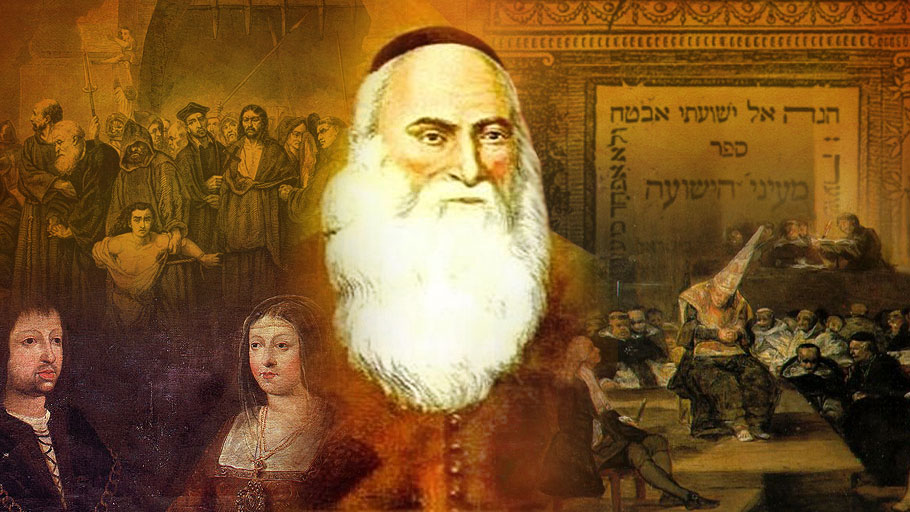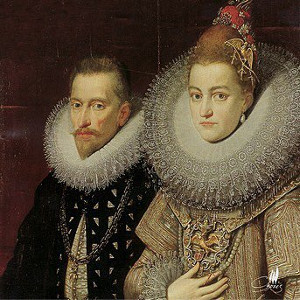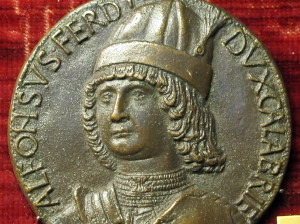 Iran’s Attack on Israel
Iran’s Attack on Israel


8 min read
An advisor to kings, Rabbi Don Yitzchak Abarbanel dedicated his life to helping Jews in Europe.
In the late Middle Ages, the learned members of the Jewish Abarbanel family emerged as advisors to kings and princes. As the Middle Ages gave way to the Renaissance, one scion of the Abarbanel family – Rabbi Don Yitzchak Abarbanel – emerged as a true Renaissance man. Scholar, religious leader, philanthropist, diplomat, banker and royal advisor, few figures in European history can match Rabbi Yitzchak’s erudition and greatness – and his concern for his fellow Jews.
Rabbi Yitzchak’s father, Rabbi Judah Abarbanel, was an advisor to a local Spanish ruler, King Henry, who ruled in the city of Castile. King Henry relied heavily on Judah’s good advice and resisted calls by Catholic leaders to persecute the Jews in his kingdom. But the relative peace of that region’s Spanish Jews was shattered when a charismatic populist emerged, preaching hatred against Jews.
Ferrand Martinez, a local monk and royal confessor, hated Spain’s Jews and lost no time in fanning the flames of hatred in his fellow Christians. He would preach against Jews, then lead a mob from town to town, attacking Jewish quarters, breaking into synagogues, and threatening to kill Jews unless they converted on the spot. Seville, Cordova, Toledo and many smaller towns were all attacked by Martinez’s mobs, and the region began to empty of its Jews.
King Alfonso appointed Yitzchak treasurer of the royal court of Portugal.
Rabbi Judah Abarbanel fled along with many of his compatriots, settling in neighboring Portugal where his innate talents once again caught the eye of the local royal rulers. Judah became a favorite advisor to King Alfonso V of Portugal. Wealthy and secure at last, he was able to provide a solid education for his brilliant young son Yitzchak. Yitzchak mastered many languages with ease and excelled in Jewish studies and philosophy. He began to write books about some of the most fundamental questions in Jewish thought, addressing issues such as the nature of prophecy. He also composed commentaries on the Torah. Yitzchak became a rabbi like his father. Eventually, he was forced to abandon his full-time studies when King Alfonso demanded he join his father in working for the royal family and appointed Yitzchak treasurer of the royal court of Portugal.
Rabbi Yitzchak advised the king well and helped Portugal grow in importance and prestige. He never forgot his Jewish brethren and was always on the outlook for ways to ease the many burdens placed on the Jewish community in what was often a harsh, Catholic land. In 1471, when King Alfonso captured a town in Morocco, he placed the town’s 250 up for sale as slaves. Rabbi Yitzchak sprang into action. He knew it would be impossible to change the king’s mind about the sale, so he offered his own money and raised additional funds among Portugal’s Jews to purchase the slaves himself and then free them. For two years afterwards, Rabbi Yitzchak personally supported these 250 Moroccan Jews, until they’d learned to speak Portuguese and had settled into jobs and occupations.
When King Alfonso died in 1481, Portugal became markedly less tolerant of Jews. The old king’s son, King John II, accused many of his father’s old advisors of plotting against him. He summoned a host of advisors and ministers to his palace, including Rabbi Yitzchak. Rabbi Yitzchak was on his way to meet the new king when a friendly informer stopped him with horrifying news: as each royal advisor approached the palace, they were seized and then beheaded. Rabbi Yitzchak lost no time, turning around on the spot and trying to flee with his wife and children to Spain.
The family settled in Toledo. There, the uprooted family found themselves bereft, penniless and without connections. Rabbi Yitzchak started working for a Jewish banking company and spent his free time writing commentaries on the Torah. These beautiful, insightful works continue to be studied widely today.
Rabbi Hersh Goldwurm zt”l explained the enduring nature of Rabbi Yitzchak Abarbanel’s appeal:
“Abarbanel’s literary output was voluminous and multi-faceted…Abarbanel is unique among Jewish Bible commentators in that he does not hesitate to quote the comments of Christian exegetes such as Jerome, Nicholas de Lyre, and others, sometimes even accepting their views. A striking feature of Abarbanel’s works...is their comprehensiveness. One can expect to find in them, on any topic, a comprehensive digest of...views.” (Quoted in The Early Acharonim, compiled and edited by Rabbi Hersh Goldwurm. Mesorah Publications Ltd.: 2008.)
The Abarbanels’ peaceful life in Toledo came to an end in the year 1484, when King Ferdinand and Queen Isabella of Spain commanded Rabbi Yitzchak to become their royal treasurer, reprising the career he’d once performed with distinction in Portugal.
Rabbi Yitzchak could hardly refuse a royal order but he might have had a secondary reason to comply. The feared Spanish priest Tomas de Torquemada was now head of the Inquisition in Spain and he was leading the charge to root out secret Jews who’d pledged loyalty to the Catholic Church out of fear, but who retained a Jewish lifestyle in secret. These secret Jews were subject to horrific torture and murder. Historians speculate that Rabbi Yitzchak thought that by becoming close to Spain’s royal rulers, he might use his influence to blunt the harshest decrees and laws against Jews.
While Rabbi Yitzchak did become a vital advisor to Ferdinand and Isabella, they were ardent supporters of the Inquisition and seem to have had personal antipathy to Jews. Rabbi Yitzchak served as Queen Isabella’s personal financial agent and raised the money that she and Ferdinand needed to capture the city of Grenada and complete the unification of Spain as a single, Christian country under their rule. Instead of being grateful for his role in their victory, Ferdinand and Isabella turned on Rabbi Yitzchak and the rest of Spain’s Jews. They issued a decree: in 1492, only Christians would be allowed to reside in Spain. Any Jews who refused to convert would be forced to leave.
Rabbi Yitzchak pleaded with the royal couple to avert this decree, to no avail.
Rabbi Yitzchak pleaded with the royal couple to avert this decree, to no avail. He offered to raise vast sums of money for the royal court if only the Jews could stay. Ferdinand and Isabella were unmoved. They told Rabbi Yitzchak that if he converted to Christianity he could remain and keep his position in the royal court. Rabbi Yitzchak told them that was impossible.
 Ferdinand and Isabella
Ferdinand and Isabella
On the solemn Jewish holiday of Tisha B’Av in the Jewish year 5252 (July 30, 1492), Rabbi Yitzchak and his family joined tens of thousands of other Spanish Jews at the nation’s ports, crowding onto ships to take them away from Spain. Many of these desperate refugees were taken advantage of, sold into slavery or even thrown overboard by unscrupulous ship captains. Rabbi Yitzchak and his family managed to make it to the town of Naples.
When King Ferdinand heard that Spanish Jews were landing in that Italian city, he sent word to the local king of Naples (also named Ferdinand) demanding he deny Jews entry. King Ferdinand of Naples refused to be cowed, and allowed the Jews to settle in his domain. Rabbi Yitzchak had hoped to work full time on writing his Torah commentaries again, but the king of Naples demanded that Rabbi Yitzchak once again assume the role of treasurer in his new home.
He became treasurer and royal advisor to King Ferdinand of Naples, as well as his son, King Alfonso II, when he succeeded his father in 1494. Rabbi Yitzchak’s travails were not over. In 1495, Naples fell to France and King Alfonso II fled to the Mediterranean island of Sicily. Rabbi Yitzchak and his family went with the deposed king, continuing to serve him in exile.
Rabbi Yitzchak Abarbanel desperately worked to make his communities a safer, better place for Europe’s battered, persecuted Jews.
He was by now in late middle age but his wanderings never ceased. When King Alfonso II died, Rabbi Yitzchak moved to the Mediterranean island of Corfu where he lived in poverty, writing and studying and working on his voluminous writings. He moved back to Naples, then later to Venice where the city elders invited him to become a government official. Ever the dazzling statesman, Rabbi Yitzchak eventually rose to become one of the rulers of the Venetian Republic. He died in 1509, a celebrated and famous Venetian. Leading members of Venice’s government attended his funeral, in the Italian town of Padua, which was then home to a large Jewish population and contained a Jewish cemetery.
 King Alfonso II
King Alfonso II
In his commentary on the famous Biblical story when Jacob confronts his brother Esau (who has vowed to kill him), the Abarbanel noted that Jacob feared Esau and “his fear was like that of a real hero who, going to battle, is afraid of death and senses the danger, but out of noble motives scorns life and chooses a brave death…” (Quoted in New Studies in Bereshit by Nehama Leibowitz). This nuanced description of our patriarch Jacob’s feelings might reflect the dramatic realities of Rabbi Yitzchak’s life as well. Time and again, he faced danger and the threat of death. Yet throughout his long life, Rabbi Yitzchak Abarbanel went into battle, immersing himself in public life, desperately working to make his communities a safer, better place for Europe’s battered, persecuted Jews.
